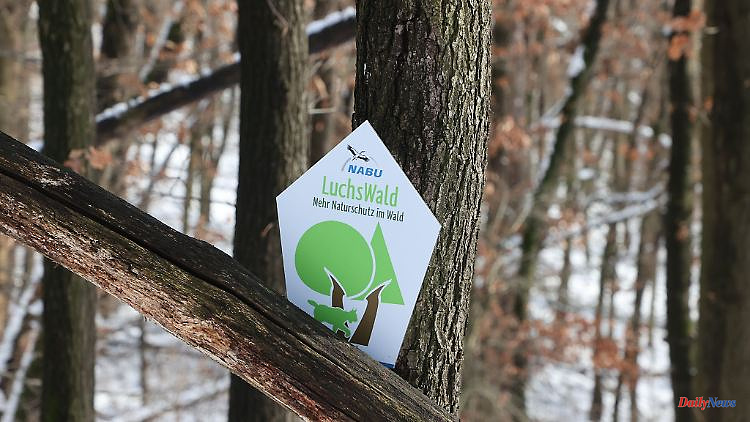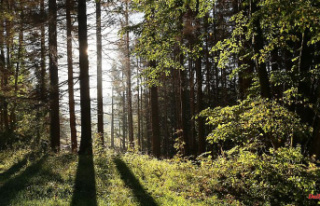Only a handful of lynx live in Thuringia. Experts see the potential for up to 100 of the animals threatened with extinction in Bavaria. With the "Luchs Forest" project, Nabu wants to create retreats.
Jena (dpa/th) - Over 200-year-old beeches, oaks and sycamore maples, with impenetrable thickets in between. "In summer it looks like the jungle in South America," says Silvester Tamás from the Nabu Thuringia nature conservation association about the area in Großlöbichau near Jena, which was named a "lynx forest" on Monday.
With an area of around seven hectares, the forest area is too small as a habitat for the wild cats, which are threatened with extinction, explains Tamás. However, untouched areas like these could serve as retreats for the animals and are therefore an important building block for the return of the lynx to Thuringia.
"Nabu has set itself the big goal of helping the lynx in Germany get going," explains Tamás. It is estimated that only a handful of specimens live in Thuringia at the moment. The potential in the Free State - with the Thuringian Forest, slate mountains and the green corridor above the Saale valley - is great, however, explains the project coordinator: "We have space for 90 to 100 lynx."
Due to its central location in Germany and Europe, Thuringia is "an important transport hub for the Central European lynx population," emphasizes Tamás. According to experts, Thuringia could play a key role for the three groups currently living in Germany in the Harz Mountains, in the Bavarian Forest and in the Palatinate Forest. In the Harz Mountains, the lynx density is already high, with two to three animals per 100 square kilometers, says the coordinator. "It's getting too cramped for the lynxes there - they want to go to Thuringia and other densely wooded areas."
In addition to preserving untouched mixed deciduous forests, the Nabu sees an important task in raising public awareness for the protection of wild cats, says Tamás: "Many animals die because they are illegally hunted or because hunters may have confused them."
The piece of forest awarded on Monday belongs to the Nabu Foundation National Natural Heritage. Chemicals against bark beetles are just as little used here as chainsaws. After an area near Nordhausen and one near the Hohenwartetalsperre, this is the third location in Thuringia to receive the symbolic award as a "lynx forest". With this campaign, the conservationists also want to motivate other forest owners to protect habitats for animals. "We must have the courage to let nature take care of itself in certain areas," says Tamás. This not only helps the lynx, but also other shy forest dwellers such as the black stork.












